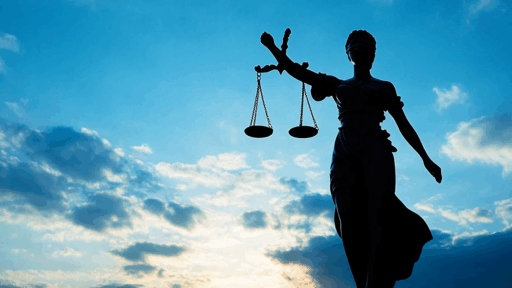Navigating legal documents can be daunting, but notaries play a crucial role in making the process smoother. A notary, often known as a notary public, is a certified official responsible for verifying identities, witnessing signatures, and ensuring that documents are executed correctly. Their presence helps prevent fraud and provides an additional layer of trust in various transactions.
Understanding what a notary means and the services they offer can save time and reduce complications in legal matters. Whether you’re buying a home, drafting a will, or entering into a business contract, knowing when and why to use a notary can be invaluable. This article delves into the essential functions of a notary and how their expertise can benefit you.
Understanding What Notary Mean
A notary, also known as a notary public, holds a significant role in legal and business transactions. They are certified officials authorized to perform acts in legal affairs, predominantly witnessing signatures and certifying documents. Their duties ensure the authenticity of signatures on important documents like affidavits, deeds, and contracts.
Verifying Identities
Notaries verify identities by checking government-issued identification documents. For instance, they may examine a driver’s license or passport to confirm the signer’s identity. This step prevents identity fraud and enhances trustworthiness.
Witnessing Signatures
Witnessing signatures is a core function of a notary. They observe the signing of documents to ensure the signer’s intentions are clear and voluntary. This process is crucial in agreements where legal disputes could arise.
Certifying Documents
Certifying documents involves confirming that copies of original documents are genuine. For example, they might certify copies of birth certificates, academic transcripts, or licenses to guarantee their validity for official purposes.
Preventing Fraud
By validating identities and witnessing signatures, notaries deter fraudulent activities. Their involvement adds a layer of security to sensitive transactions, promoting integrity and legality in documentation.
Enhancing Trust
Notaries contribute to the trustworthiness of transactions. Their certification reassures parties that documents have been executed correctly and lawfully, fostering confidence in legal and business interactions.
Importance of Notary Mean
Notaries perform crucial functions that protect the integrity of legal documents. By verifying identities and witnessing signatures, they ensure transactions are trustworthy.
Legal Context
In legal settings, notaries offer an essential layer of verification. They authenticate affidavits and legal declarations, which courts often require. Their presence assures courts that documents are legitimate, as the notary confirms the signer’s identity and willingness. This verification prevents false claims and fraudulent documents from jeopardizing legal proceedings.
Everyday Applications
In daily life, the role of notaries extends beyond the courtroom. They are vital in real estate transactions, where accurate documentation is critical. Homebuyers and sellers rely on notaries to confirm the legality of their contracts. Business owners also use notarial services to authenticate agreements and partnerships. Additionally, individuals frequently need notarized documents for personal matters like loan agreements and property transfers. These everyday applications highlight how notaries help maintain order and trust in personal and professional transactions.
| Application | Context | Benefit |
|---|---|---|
| Affidavit | Legal proceedings | Verifies authenticity and prevents fraud |
| Real Estate | Home buying/selling | Ensures legal validity of documents |
| Business Contracts | Partnership/agreements | Confirms legitimacy and commitment |
| Loan Agreements | Personal finances | Prevents disputes by validating terms |
| Property Transfers | Ownership changes | Confirms identity and intent of parties involved |
Notaries enhance trust, streamline processes, and provide a critical service across varied applications, ensuring legal and everyday transactions proceed smoothly.
How Notary Services Work
Notary services involve a series of steps to authenticate documents and verify the identities of signers, helping to prevent fraud and maintain the integrity of transactions. These steps are essential for ensuring that documents are genuine and executed correctly.
Notarization Process
The notarization process includes several key steps:
- Verification of Identity: The notary checks the signer’s government-issued identification, like a driver’s license or passport, to confirm their identity.
- Witnessing Signatures: The notary witnesses the document’s signing, ensuring that the signer is not under duress and understands the document’s content.
- Journaling the Act: Notaries often keep a journal of their notarial acts, recording details such as the date, type of document, and information about the signers.
- Applying the Notary Seal: The notary affixes their official seal or stamp and signature to the document, certifying that the notarization took place.
Each step in the process is designed to enhance the document’s credibility and reduce the risk of fraud.
Types of Documents Notarized
Notaries handle a wide range of documents, including:
- Real Estate Documents: These include deeds, mortgage documents, and property transfer forms. Notaries verify the identity of parties involved to prevent fraudulent transactions.
- Legal Agreements: Contracts, affidavits, and powers of attorney are often notarized to ensure all parties’ signatures are genuine.
- Financial Documents: Loan agreements, credit documents, and financial statements require notarization to protect against fraudulent activities.
- Personal Legal Documents: This includes wills, trusts, and adoption paperwork, where notarization is crucial to validate the signer’s intent and authenticity.
These documents rely on notarization to ensure they are legally binding and trusted by all parties involved.
Choosing the Right Notary
Selecting the appropriate notary ensures the legitimacy and smooth processing of important documents. Consider the following aspects when choosing a notary.
Credentials and Qualifications
Verify the notary’s credentials. Ensure they hold a valid commission issued by the state. Confirm they have completed the necessary training and examinations specific to their jurisdiction. In some states, this involves passing a test on relevant laws and procedures.
Check for additional certifications. Some notaries are also certified signing agents, which is beneficial for real estate transactions. These certifications indicate advanced expertise in handling complex documents.
Investigate their professional affiliations. Membership in organizations like the National Notary Association (NNA) often indicates a commitment to higher standards of practice. Affiliations provide ongoing education and updates on notary laws and best practices.
Questions to Ask a Notary
Ask about their experience. Inquire how many years they have been a notary. More experience often translates to greater familiarity with various document types and procedures.
Request references or reviews. Feedback from previous clients can provide insights into the notary’s reliability and professionalism.
Clarify the types of documents they have notarized. Ensure their experience aligns with your needs, whether it involves real estate documents, legal agreements, or financial documents.
Understand their availability and flexibility. Ensure their hours and location align with your schedule. Some notaries offer mobile services, coming to your location for convenience.
Inquire about their fee structure. Notary fees can vary by state and document type. Understanding costs upfront helps avoid surprises.
Evaluate their knowledge of state laws. Confirm they stay updated on any changes to notary regulations and procedures. This is crucial for ensuring compliance and the validity of notarized documents.
Common Misconceptions About Notary Mean
Misunderstandings about notaries can lead to confusion and errors. Clarifying these misconceptions helps secure legal and personal transactions.
Myths and Facts
Several myths exist about what notary services entail.
- Myth: A Notary Provides Legal Advice
Fact: A notary’s role is to witness signatures and verify identities, not to offer legal advice. Only licensed attorneys can provide legal guidance. - Myth: Notaries Authenticate Documents’ Content
Fact: Notaries confirm that signatures are genuine and parties understand the document, but they do not verify the accuracy of the document’s content. - Myth: Any Notary Can Perform All Types of Notarizations
Fact: Different notarial acts exist, such as acknowledgments and jurats. Notaries must follow state-specific regulations and may require additional certification for some duties, like loan document signings. - Myth: Notarization Makes a Document Legal
Fact: Notarization enhances the credibility of signatures and prevents fraud, but it does not make a document legally binding. Legal enforceability depends on the document’s compliance with relevant laws.
Frequently Confused Terms
Certain terms related to notary services are often used interchangeably, creating confusion.
- Acknowledgment vs Jurat
An acknowledgment verifies that the signer willingly signed the document. A jurat requires the signer to swear an oath or affirm the document’s truthfulness, often used in affidavits. - Notarization vs Authentication
Notarization involves a notary verifying a signature. Authentication refers to validating a notary’s authority, usually for international documents, often done through an Apostille or certificate of authentication. - Commission vs Certification
A commission is the official appointment of a notary by the state. Certification refers to additional qualifications a notary may earn, such as a certified signing agent. - Witness vs Notary
A witness observes a document’s signing but does not perform notarial acts. A notary, beyond witnessing, verifies identities and applies a seal.
Discover the Power of BlueNotary:
Integrate your Business, Title Company, or Law Firm to Satisfy your Customers and Decrease Turnaround
Get a document Notarized/Sign-up
Join the Free Notary Training Facebook Group
Conclusion
Understanding the role of notaries is crucial for navigating legal and personal transactions smoothly. They provide essential services that verify identities, witness signatures, and certify documents, ensuring trust and preventing fraud. Notaries play a vital role in real estate, business contracts, and other legal matters by adding a layer of security and legitimacy.
Choosing the right notary involves verifying their credentials, understanding their experience, and ensuring they comply with state laws. Dispelling common misconceptions about notaries helps clarify their responsibilities and the importance of their services. By leveraging notarial expertise, individuals and businesses can ensure their documents are legally binding and trusted by all parties involved.
Frequently Asked Questions
What is a notary public?
A notary public is a certified official who verifies identities, witnesses signatures, and ensures proper document execution to prevent fraud and enhance trust in transactions.
Why are notary services important?
Notary services are crucial for preventing fraud, verifying document authenticity, and ensuring legally binding agreements in transactions like buying a home, drafting a will, or entering business contracts.
What documents commonly require notarization?
Common documents that require notarization include real estate documents, legal agreements, financial documents, and personal legal documents.
How does the notarization process work?
The notarization process includes verifying identity through government-issued ID, witnessing signatures, journaling the act, and applying the notary seal to enhance document credibility and reduce fraud risk.
Can a notary provide legal advice?
No, notaries cannot provide legal advice. They verify identities and signatures but do not assess the content’s accuracy or offer legal counsel.
What should I consider when choosing a notary?
When choosing a notary, verify their credentials, check their experience, ask for references, understand their fee structure, and confirm their knowledge of state laws.
How does a notary prevent fraud?
Notaries prevent fraud by verifying the identities of signers through government-issued identification, witnessing signatures, and ensuring proper document execution.
Do notaries authenticate document content?
No, notaries do not authenticate the document’s content. They verify the signatures and identities but do not assess the content’s accuracy.
What is the difference between acknowledgment and jurat notarizations?
Acknowledgment notarization confirms the signer’s identity and willingness, while jurat notarization requires the signer to swear or affirm the document’s truthfulness.
How does a notary enhance trust in legal transactions?
A notary enhances trust in legal transactions by adding a layer of security through verification of identities, witnessing signatures, and ensuring document execution, which prevents fraud.
Are there different types of notary certifications?
Yes, aside from being a notary public, some notaries obtain additional certifications, such as becoming a certified signing agent, to provide specialized services.








